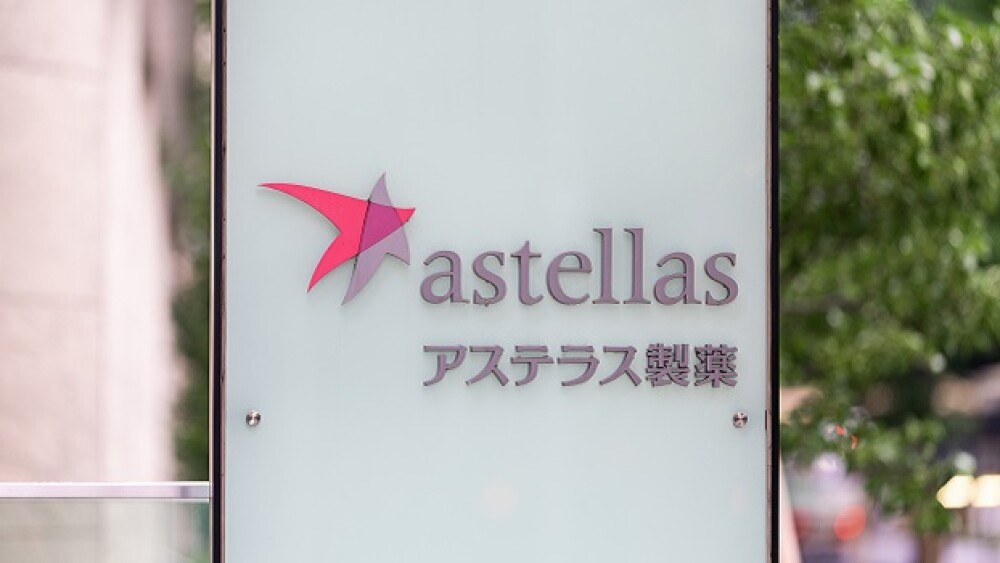A collaborative research agreement will leverage Sony’s unique polymer, which the companies contend is a stable, effective linker for delivering antibody-drug conjugate payloads to cancer cells.
Pictured: Astellas sign with logo/yu_photo/Adobe Stock
Under a new collaborative research agreement, Astellas Pharma is turning to an interesting choice of partner to develop a novel antibody-drug conjugate platform for oncology therapeutics. Tuesday, the Tokyo-based biopharma announced a collaboration with tech giant Sony Corporation.
The partnership will leverage Sony’s biotech R&D arm, which is providing its unique polymeric material, dubbed Kiravia Backbone, to serve as linker for the novel antibody-drug conjugate (ADC).
The linker molecule plays an important role in determining both the efficacy and adverse effects of ADCs. A linker that is too stable may not release the cytotoxic drug once it reaches the cancer cells. An unstable linker will release the payload prematurely, harming healthy cells.
The very first ADC, Pfizer’s Mylotarg, approved in 2000, was pulled from the market in 2010 when it was determined to cause severe liver toxicity due to an unstable linker. The drug was put back on the market in 2017 at a smaller dose after a redesign but with a black-box warning from the FDA.
Astellas contends Sony’s polymer design will effectively deliver the ADC’s anti-cancer payload to the targeted malignant cells, enhancing efficacy and reducing off-target side effects.
Astellas and Sony first began exploring the idea last summer with feasibility studies in human cancer cells. Under the announced agreement, the companies will develop a novel ADC platform and Astellas will conduct non-clinical studies of the candidates.
Astellas already has a partnered ADC on the market. Padcev, developed with Seagen for the treatment of urothelial cancer, earned $451 million in sales in 2022.
Astellas isn’t only expanding its oncology portfolio. Earlier this month, the biopharma announced it will acquire Iveric Bio for almost $6 billion to bolster its blindness and regeneration focus area. Iveric’s C5 inhibitor is already under priority review with the FDA with a PDUFA goal date in August 2023.
Astellas’ annual revenue was down 5% last year to just under $11 billion.
ADC Bonanza
The ADC space is on fire of late. In March, Pfizer scooped up Seagen for $43 billion. Adcetris, an ADC Seagen developed with Takeda, is approved for lymphoma and posted $839 million in 2022 sales.
Last week, AstraZeneca struck its second deal of the year for an ADC, putting up to $600 million on the line with LaNova Medicines for its GPRC5D-directed ADC for multiple myeloma. In February, AstraZeneca paid $63M upfront to KYM Biosciences for its Claudin 18.2 ADC. KYM is eligible for up to $1.1 billion in potential milestone payments.
Kate Goodwin is a freelance life science writer based in Des Moines, Iowa. She can be reached at kate.goodwin@biospace.com and on LinkedIn.






